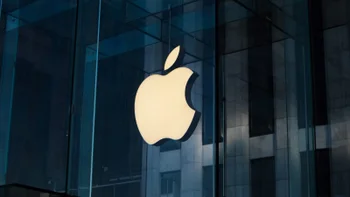The bill Apple strongly opposed advances to the full Senate; might force Apple to allow sideloading

Okay, it seems Apple may be out of luck this time and things won't go its way, at least not in the Senate Judiciary Committee. Yesterday, we reported on the fact that Apple wrote to a couple of Senators urging them to reject a proposed law that could force the company to allow side-loading on iPhones and iPad. However, AppleInsider now reports the law has passed the Senate Judiciary Committee and is now continuing on to be debated by the full Senate.
The Open Markets Act is the bill that would force Apple to allow side-loading on iOS (basically, to allow people to download and install apps from places other than Apple's App Store). It has now advanced out of the Senate Judiciary Committee, heading to the full Senate for a vote.
On top of that, the Open Markets Act will bar companies from requiring developers to use their first-party payment systems, as well as bans the practice of tech giants using non-public info to compete with smaller app developers.
Sen. Amy Klobuchar, one of the bill's main sponsors, stated that this legislation will establish new rules for app stores and will therefore help level the playing field. Additionally, the bill will ensure an innovative and competitive app marketplace. The bill is now one step closer to becoming law.
As we reported previously, Apple has been a vocal critic of the proposed legislation. The company sent a few letters to members of the Senate Judiciary, explaining how this bill could harm user privacy, security, and choice (unless the bill gets amended that is).
The letter Apple sent right before the debate on the bill was written by Apple head of government affairs in the Americas Tim Powderly, and it was sent to top members of the US Senate Judiciary Committee.
Powderly wrote that the legislation (unless amended) will make it easier for big social media platforms to avoid the customer-oriented practices of Apple's App Store. . What's more, Apple underlines that the bill would harm user privacy, create legal uncertainty and expansive liability exposure, as well as deny consumer choice.
Apple has a lot to say about sideloading apps on the iPhone or iPad. Powderly wrote that sideloading will give bad actors the possibility to evade Apple's privacy and security protections and distribute apps without critical security checks. This way, the letter stated, malware, various forms of scams, and exploitation of personal user data will escalate.
Earlier, in the month of January, there was another bill that Apple criticized. The company sent a letter to Senators Dick Durbin, Amy Klobuchar, and Mike Lee, in which it informs them the antitrust bills (this time, the American Innovation and Choice Online Act) could undermine user security and privacy on iPhones in multiple ways. Pretty much, saying a similar thing to the letter it sent in regards to the Open Markets Act.
Apple may get forced to allow sideloading on iPhones and iPad if the Open Markets act gets accepted
The Open Markets Act is the bill that would force Apple to allow side-loading on iOS (basically, to allow people to download and install apps from places other than Apple's App Store). It has now advanced out of the Senate Judiciary Committee, heading to the full Senate for a vote.
Members of the Senate Judiciary Committee have approved the proposed legislation almost unanimously. The vote was 21-1, according to media reports. The only member of the Committee to vote against the proposed legislation is Sen. John Cornyn.
Basically, the Open Markets Act is an antitrust bill, that would place additional restrictions on big tech giant companies such as Apple and Google. If the law gets accepted, it would ban the aforementioned companies from prohibiting side-loading on their platforms. This is something Apple has had concerns and issues with, as Cupertino keeps bringing the issue of privacy and possible scams making their way onto people's smartphones, if the bill becomes a law, that is.
The passage of the Open App Markets Act out of the Senate Judiciary committee brings us one step closer to having this legislation signed into law. This bill will let people download apps directly from outside companies rather than being forced to go through official app stores.
— Sen. Marsha Blackburn (@MarshaBlackburn) February 3, 2022
Sen. Amy Klobuchar, one of the bill's main sponsors, stated that this legislation will establish new rules for app stores and will therefore help level the playing field. Additionally, the bill will ensure an innovative and competitive app marketplace. The bill is now one step closer to becoming law.
Apple didn't want this to happen
As we reported previously, Apple has been a vocal critic of the proposed legislation. The company sent a few letters to members of the Senate Judiciary, explaining how this bill could harm user privacy, security, and choice (unless the bill gets amended that is).
Apple has a lot to say about sideloading apps on the iPhone or iPad. Powderly wrote that sideloading will give bad actors the possibility to evade Apple's privacy and security protections and distribute apps without critical security checks. This way, the letter stated, malware, various forms of scams, and exploitation of personal user data will escalate.
Earlier, in the month of January, there was another bill that Apple criticized. The company sent a letter to Senators Dick Durbin, Amy Klobuchar, and Mike Lee, in which it informs them the antitrust bills (this time, the American Innovation and Choice Online Act) could undermine user security and privacy on iPhones in multiple ways. Pretty much, saying a similar thing to the letter it sent in regards to the Open Markets Act.










Things that are NOT allowed: